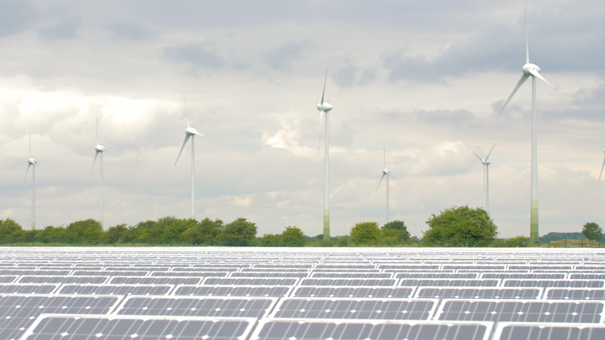
Green Energy
Jobs, growth and energy independence start with green power
February 19, 2026
From childhood, we’ve been told that fish is a health food. "It’s good for the brain," they say. "You need fish for a healthy heart."
But is that true? Not anymore. Thanks to industrial overfishing, pollution, and the sheer amount of chemicals dumped into our oceans, eating fish is no longer the healthy choice people once thought it was. In fact, farmed salmon is an environmental disaster as well as a serious health risk. Often marketed as one of the healthiest proteins, consuming farmed salmon could be putting you and your family at serious risk.
Let’s break it down.
Did you know that a 200g serving of farmed salmon contains more fat than a McDonald’s Big Mac and fries? That’s right—this so-called ‘health food’ is an ultra-processed product, pumped full of chemicals, toxins, and antibiotics.
Farmed salmon is marketed as a superfood, but in reality, it’s a chemical cocktail. Heavy metals, toxic chemicals, microplastics, antibiotics, lice, and even formaldehyde—this is what you’re really eating when you choose farmed salmon.
The industry spends millions convincing you it’s good for you, but the science says otherwise. Let’s take a closer look.
Heavy metals like mercury and arsenic are naturally found in soil, water, and air. But thanks to industrial pollution, their concentrations—especially in our oceans—have skyrocketed. Fish absorb these toxic metals, meaning every bite you take is laced with potentially harmful substances.
Scientists have found that farmed salmon contains alarmingly high levels of mercury and arsenic—so much so that some experts strongly recommend against eating farmed fish at all. Chronic exposure to arsenic has been linked to skin lesions, diabetes, cardiovascular disease, and an increased risk of cancer.
This isn’t just a minor issue—it’s a serious public health risk. And yet, it’s still sitting on supermarket shelves, sold to consumers as ‘healthy.’
PFAS (per-and polyfluoroalkyl substances) are synthetic chemicals that don’t break down in the environment—hence their nickname, 'forever chemicals'. They’ve been linked to a whole host of health problems, including:
Infertility (in both men and women)
High cholesterol and hypertension
Obesity in children and adults
Developmental issues in infants
PFAS tend to accumulate in the groundwater and studies show consumers who eat high levels of seafood are more likely to be exposed to PFAS concentration levels that pose a concerning health risk. One study even found that pregnant women should reduce their fish intake due to high PFAS exposure. Another revealed that mothers who ate more fish during pregnancy had infants with significantly poorer motor function at six months old.
And yet, despite overwhelming evidence, these toxic chemicals are still present in farmed fish. The industry isn’t just harming the oceans—it’s harming us too.
Formaldehyde—a toxic, cancer-causing chemical—is being used without proper controls in salmon farms.
This strong-smelling, highly toxic substance is used to ‘prevent’ disease outbreaks in farmed fish. But here’s the problem:
Formaldehyde is a known carcinogen, linked to nasopharyngeal cancer and leukemia.
It’s used in high concentrations in salmon farms, with little regulation.
It doesn’t just stay in the water—it ends up in the fish you eat.
The World Health Organization (WHO) and the International Agency for Research on Cancer (IARC) have both classified formaldehyde as a human carcinogen. And yet, salmon farms continue using it in an attempt to ‘manage’ the disease-ridden conditions of their overcrowded cages.
It’s a disaster for marine life—and for human health.
Antibiotic resistance is one of the biggest threats to human health in the 21st century. And salmon farming is making it worse.
Because farmed fish are packed so tightly together, disease spreads like wildfire. To keep their profits flowing, the industry pumps salmon full of antibiotics. But the more antibiotics we use, the less effective they become.
Antibiotic-resistant bacteria have already been found in fish farms.
Chemicals used in salmon cages have been detected up to 1.5km away.
Eating farmed fish means unknowingly consuming low doses of antibiotics—contributing to antibiotic resistance in humans.
If we continue down this path, the consequences could be catastrophic. We’re creating bacteria that no antibiotic can kill.
Plastic is everywhere—so much so that microplastics have been found in untouched corners of the Earth, in our bloodstream, and even in human brains.
By 2050, there will be more plastic in the ocean than fish. And the more plastic we dump into our seas, the more it ends up in the food chain.
Farmed salmon is one of the most contaminated foods when it comes to microplastics. When consumed, these tiny plastic particles:
Travel through the body and lodge in organs and blood.
Release toxic substances that interfere with hormones.
Cause inflammation, cell damage, and potentially cancer.
Most humans ingest a significant amount of microplastic and even nanoplastic particles through food - ‘particularly through the consumption of fish and other seafood’, according to the National Library of Medicine.
Here’s the kicker: when Food Standards Scotland was asked about the presence of microplastics in farmed salmon, their response was chilling:
"There are currently no regulatory standards for microplastics in food and feed and methods for measuring microplastics."
Translation? They don’t officially measure it, so they can pretend it’s not a problem.
We’ve been sold a lie. The idea that fish—especially farmed salmon—is a ‘healthy’ food is nothing more than clever marketing.
The reality? It’s a toxic, heavily processed, disease-ridden product, loaded with harmful chemicals and pollutants.
If not for the environment, do it for your health. Stop eating farmed salmon. Stop eating fish. The risks simply aren’t worth it.
It’s time to unlearn the lies we’ve been told. You don’t need fish for your health—but our oceans desperately need us to stop eating them.
A plant-based diet eliminates all of these health risks—no heavy metals, no ‘forever chemicals,’ no antibiotics, no plastic pollution. It’s better for the oceans, better for your body, and better for the planet.
The choice is yours.
Choose health. Choose compassion. Choose plant-based.